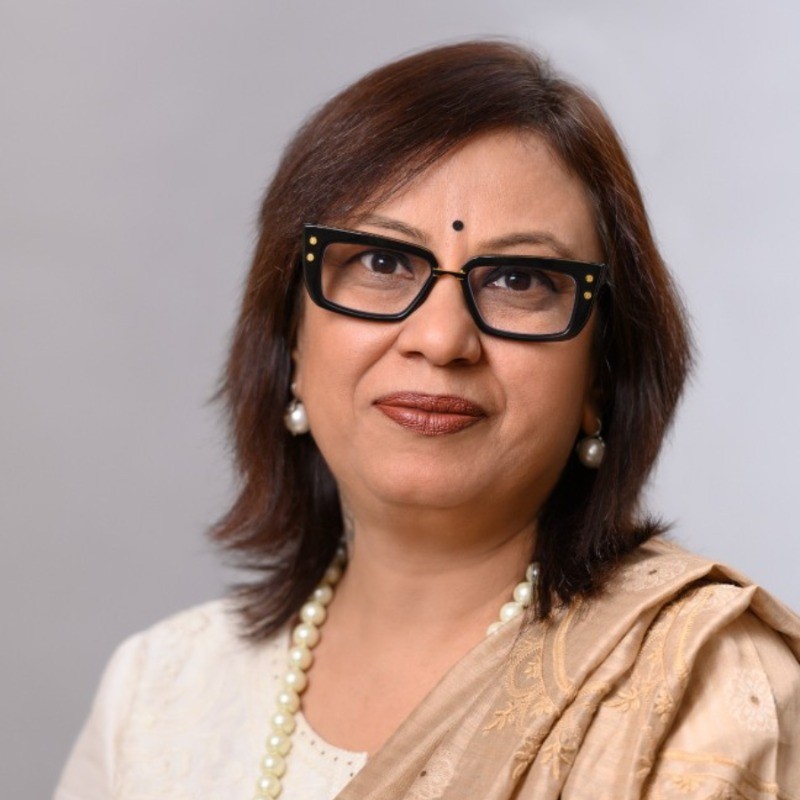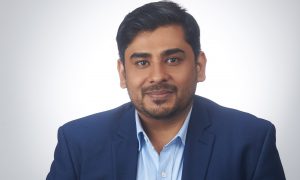This interview has been published by Namrata Singh and The SuperLawyer Team

Looking back at your remarkable 34-year career, it’s evident that you’ve broken barriers and achieved significant success in a field where women were once a minority. Could you share some insights into the challenges and difficulties you faced during the early years of your career, and how you overcame them to establish yourself as a leader in corporate law?
I love this question. In the corporate world, lawyers are often viewed either as impediments to the goals that ambitious sales folks are trying to achieve or ones who should suggest mechanisms to navigate around the blockers. Several times making your point of view heard in a room full of ambitious young men who had pre-decided the path forward was an enormous challenge. The only good point is that companies will not proceed until they have the legal sign-off so you surely had the last word but then your word will decide if you made enemies (lawyers certainly don’t make friends) or were perceived as difficult. I always viewed my role as a solution provider and what worked was to always share 2-3 options for the group to decide and weigh their risks. As a young professional, I always classified those options as High-risk, Medium-risk and Less Risk for the group to decide. Yes, you could say that this is more CYA, but I certainly did not wish to be seen as a blocker.
Your career spans across diverse industries and roles, from telecom to multinational retail and now law consultancy. What drove you to make such transitions, and how do you think these experiences have shaped your perspective in corporate practice?
I see my Legal role as a Risk Consultant. To add, I was passionate about learning new industries. Fortunately, the early 1990s and the liberalisation wave that set in our country brought several new industries into existence – Mobile Telecom, Business Process Outsourcing (BPO) and Technologies like Optic Fibre Networks and also infrastructure expansion. I recall, there were several Public-private sector partnership opportunities that came up. My employment with ICICI as a legal counsel exposed me to study and approve/ disapprove of legal covenants to cover risk when the organisation was sanctioning project loans to companies that were being set up in these sectors. The “thirst to learn” was a key driver. Mind you, Google was only born in 1998 so it was all hard work to find material, study them and identify risks and mitigations. And then when US MNCs started to set bases in India for outsourcing their business processes, I was perforce exposed to draw balances between the laws that governed those firms in the EU/ US and the laws that are applicable in India. I remember my stint with the BPO arm of General Electric when we had to educate our Indian employees to be familiar with FCPA (Foreign Corrupt Practices Act, 1977 of the US). The list goes on as I dabbled with more EU firms (like my stint with the Finnish-German Nokia Siemens and later with Metro Cash & Carry, AG) and this shaped me to become who I am today. In summary, “Learn and Be Curious” – which I understand is a leadership principle of today’s Amazon, is in essence I imbibed as an individual, quite unknowingly and intuitively.
Your work includes managing legal and compliance functions across various multinational companies. Can you share a particularly challenging situation you faced in this role and how you managed to navigate through it successfully?
One such complex instance was with my previous organisation Levi Strauss. I was their General Counsel in India and the parent organisation decided to sun-set their brand “Denizen” in the Indian market. Denizen as a brand within the company had its own set of merchandisers, retail agreements, procurement and supply chain and XXXX. While the US laws are more flexible on “firing” of employees as an outcome of business decisions, the Indian laws are not as flexible. Drawing an optimal balance was challenging and complex. You had to manage local employee morale, not draw unwanted attention from any Govt department and also educate and convince my US counterparts on the best outcome. There were long and serious discussions with the India CEO, US Legal counterparts and Finance, HR. I am proud to say that we managed it extremely well and with immense employee satisfaction and complied with all local regulations. Shaking hands (the final one) with more than 100 franchisees and distributors without a single legal notice or dispute was nothing short of a feat.
As someone who has worked across different cultures and countries, what do you think are the key skills needed to effectively communicate and negotiate in a global business environment?
There are 4 skill sets for a corporate lawyer and they work across cultures and geographies. You need to be an “active listener” – understand the problem right, be “patient” – 99% of the times, the first answer you hear from your stakeholder on your solution is “not acceptable” or “learn from other companies in the market which are doing this anyways”; third one is “do your homework” – remember you are solution provider and risk manager, so study in-depth about the issue and potential implications of your solution and last one is “don’t be diplomatic” – a lawyer needs to “show the mirror” to the CEO. Being ambiguous, using legalese and trying to please may work for your career in the short term but then remember, you are not in for the long haul.
You’ve had a unique journey, including working with companies like Levi Strauss & Co and Metro Cash & Carry. Can you share a memorable experience or lesson learned from your time in these organizations?
The most important lesson before I share any experience is that working for a firm headquartered in Germany (Metro Cash & Carry) is vastly different from a US headquartered multinational (Levi Strauss & co). I was the GC in both these firms. Both countries are economic powerhouses in their continents but their ways of working, their etiquettes, their leadership & management styles, and their focus on metrics are vastly different. For example, while some prioritised “shareholder return” more than “employee experience”, making that shift in mindset was very challenging for me. So when I was at Metro Cash & Carry, all my learnings until that time came to be of not much use (I had worked mostly with US MNCs until then) and I had to unlearn a lot of them to find my way through with the German leadership.
Your career has seen you handle high-stakes litigations and complex negotiations. What personal qualities or attributes do you think have been most instrumental in your success?
I think this question has a high degree of overlap with the question above on “key skills needed”. Remember you are a “solution provider” and a “risk mitigator”. And so not being diplomatic works for you. The journey is difficult and you need to learn to be “lonely” because you are perceived to be “difficult” in the organisation despite your best efforts because you are always “showing them the mirror” and people don’t like to hear counter-viewpoints. You build your credibility slowly and then comes a point when you are consulted on every minor matter before the company. I must share that this is not easy for at times I have to let go of my personal time/ vacation to solve an issue. Family support has been the key here for they understood my situation.
You’ve been involved in significant projects like the amalgamation of Tata Group’s telecom business with Bharti Airtel. What are some key takeaways from managing such large-scale endeavours, and how do you ensure smooth execution amidst various challenges?
Being open to a collaborative and inclusive approach is essential in navigating large conglomerates where various key stakeholders have their own mandates. Synthesizing those mandates and bringing everyone together to address the common cause (the deal) is key to the success of both the deal and its torch-bearer.
Outside of your professional life, do you have any hobbies or interests that you’re passionate about? How do you unwind after a long day at work?
I am passionate about music and long drives .. like super long drives with my family. For a large part of my life my Pets who are no more “Cindy, Sophia, and Socks” were my lifelines. Their unrequited love for me was a big factor. Caring for them, and playing with them was my way of unwinding. One more pet who is still alive “chutki” gave me company when for 6 years I was stationed alone in Bengaluru (my family was in Delhi). Back then, I looked forward to every Friday to fly back home. That simple thought of flying back every weekend was an adrenaline rush for me. I love nature and have a keen eye. For example, the other day while walking on the street, I showed my family an owl sitting on a lamp pole. These are small and simple events that give me immense joy.
With your expertise in areas like intellectual property, corporate compliance, and labor laws, what advice would you give to young professionals aspiring to pursue a career in corporate law, especially in navigating the complexities of the modern business landscape?
Today’s youngsters are way smarter than me. I don’t think they need any advice from someone like me. I can only offer one advice and that is to develop life skills that are not taught in the classrooms today and kids of today have mostly been protected and provided for in an intense manner. For example, I am not aware of any subject that teaches you to “maintain your cool when the world disagrees with your POV” in the boardroom. You will be flooded with instances where you have to walk on water (not be diplomatic yet you also wish to rise in your career graph) and that for sure is not there in any textbook. They also need to prioritize physical health along with mental well-being. Saying anything more will be preachy.
Reflecting on your extensive career and the changes you’ve witnessed over time, what differences do you perceive between today’s generation entering the workforce and those from when you began your career? Additionally, where do you believe today’s generation could focus more on enhancing their professional development?
Today’s generation is much more suave, articulate and well-informed. Some of my interactions with young ones impress me no end. For example, the other day I was a judge at a student event at NLU Delhi and the subject of contract negotiation was tackled by students (who probably have never negotiated in real life situation) in a manner and with such imaginative situational responses, it really left me wanting to go back to school with them.
Get in touch with Arpita Mukherjee-























